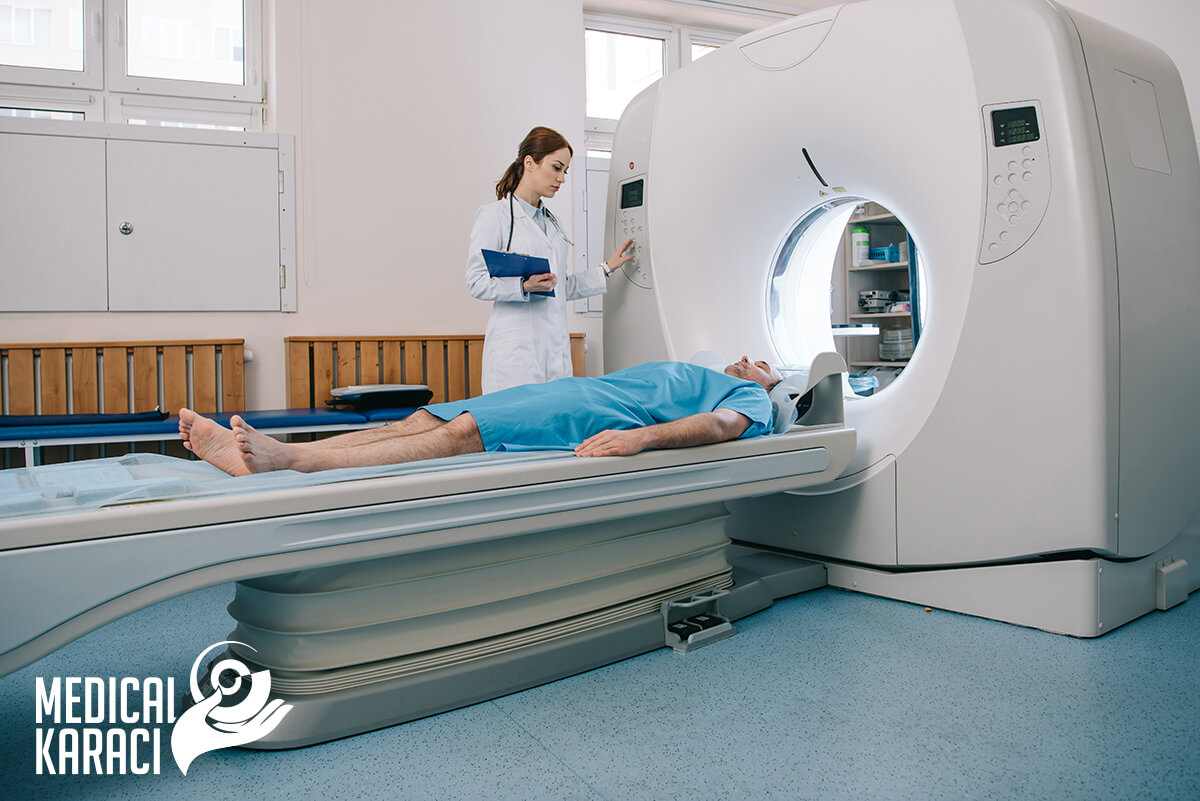Most men diagnosed with prostate cancer have localized disease, meaning that the cancer is confined to the prostate gland. However, certain factors are associated with a higher risk of the cancer spreading.
Men diagnosed with high-risk localized prostate cancer undergo additional tests to determine if there is evidence of metastatic cancer. For many years, this has been done with conventional CT scans (which use a form of X-rays) and bone scans (a type of nuclear imaging test) because prostate cancer often spreads to the bone. But both imaging technologies have limitations. Both are not very good at finding individual prostate cancer cells and thus can miss very small tumors. Bone scans can detect bone damage or abnormalities caused by something other than cancer (such as arthritis), leading to "false positive" findings that can lead to unnecessary additional tests.
Researchers are developing and testing other imaging agents that can find prostate cancer cells in the body.
What is PSMA-PET CT?
PSMA stands for prostate-specific membrane antigen. Essentially, it is a protein that is found on prostate cancer cells. PET CT stands for positron emission tomography. This is a whole-body scanning method that uses a special dye with radioactive tracers. So essentially, PSMA-PET CT is an advanced whole-body scanning method that can help doctors see and track otherwise hard-to-detect prostate cancer, potentially earlier and in much smaller amounts and sizes than the imaging that has been used to date.
How does PSMA-PET CT work?
In a PSMA-PET scan, a small radioactive molecule is injected intravenously into the patient and is attracted to the PSMA protein. The radioactive part lights up when a full-body scan is taken, which then allows doctors to have a clear idea of exactly where the prostate cancer is located in a man's body. The radioactive tracer in PSMA-PET CT is called Gallium-68. Experts believe that PSMA-PET CT is a more accurate way to identify where prostate cancer may have spread in the body, allowing for better treatment planning.
Is radiation dangerous in PSMA-PET scans?
The simple answer is no. Many patients have negative associations with the word radiation, so injecting a radioactive molecule into the body may sound scary. But the radioactive molecule is very safe - it is given in extremely small amounts and no side effects have been reported in hundreds of thousands of patients who have received PSMA radiotracers. The amount of radiation exposure from PSMA-PET scans has been found to be lower than current standard imaging techniques such as CT or PET CT.
Is PSMA-PET appropriate for every prostate cancer patient?
Whenever a new method of diagnosis or treatment is approved, it is always very exciting news for patients, but not all of them are suitable for every patient. PSMA-PET CT is an appropriate diagnostic method for high-risk patients prior to prostatectomy or radiation therapy, and for men who have already been treated for localized prostate cancer and have an elevated PSA. These are patients who may have metastases, and the purpose of the scan is to determine if there is disease progression and, if so, where it is.
For more information, we at Medical Karaj are at your service.
Call us on the following numbers "Medical Karaj": 0879 977 401 or 0879 977 402.
Also keep an eye on our constantly updated Facebook content.








